Beans from Scratch
Michelle isn't serving up samples right now, so she's serving up kitchen tips instead! Here's her tried and true approach to cooking dry beans, plus some extra tips for upping your flavor, saving time, and cook other legumes. (Ingredients and modifications are below the video.)
Ingredients
- Beans
- Water
- Salt
ONE cup of dried beans will yield THREE cups of cooked beans.
1. Pour beans onto clean cloth, plate or sheet pan and inspect for rocks or beans that are funky looking. Rinse beans.
2. Soak, soak, soak. Put the beans in a large bowl or pot, add cold water (at least 3 inches of water above the beans) and let soak overnight. Let them soak in lots of water, as it will ensure each bean has lots of water absorption. Massage the beans, rinse and refill water several times during the soak period.
3. After soaking the beans, drain and rinse and put in a large pot. Add fresh water to cover the beans 2-3 inches. The cooking vessel size is important. Bigger is better as the cooking will be more even if each bean has room to cook. Bring to boil for a few minutes. Scrape any foam off the top, as needed.
4. Cover beans, lower heat and let simmer on a gentle boil until the beans are done to the point you wish. If your pot is not deep enough, leave the lid ajar so the beans don’t get foamy and boil over.
5. At this point you can add a 3-4 inch piece of Kombu seaweed if you wish. Lift out the Kombu if it starts to break apart. Give the Kombu a taste, as you may enjoy the delicious snack that it is.
6. Stir the beans occasionally. The beans should take about 1-2 hours to be cooked through.
7. Salt the cooked beans to taste. One cup of (dried) beans to one teaspoon of salt is a good ratio.
8. If you have a lot of the cooking liquid, you can drain it from the beans and bring the liquid back to heat to reduce to a creamy consistency. You can enjoy the juice with the beans or you can use the bean cream to flavor just about any soup, braise or even pasta sauces.
Note:
- Cooking garbanzos (chickpeas) may take double the time to cook.
- Kidney beans need extra soak time, lots of rinses and longer cook times. Canned kidney beans are a good alternative.
- Lentils and split peas do not need any soak time, just a good rinse.
- If you have an Instapot, crockpot or pressure cooker, cooking beans is even easier. Follow the instructions with your appliance.
- Remember to check out the Ashland Food Co-op website for lots of fabulous tried-and-true bean recipes.
- You can add flavor components and aromatics toward the end of cooking. Beans really are better day 2 and day 3, so make plenty. Beans will keep well for about 5 days in the fridge, 3 months in the freezer.
Here are flavor profile ideas for different bean types and can be enjoyed as a cold salad, soup, stew, chili, cassoulet, entree, burger, fritter, or a creamy hummus-like dip:
Pinto: Just salt!
Black bean: Thyme, cumin seed, paprika, bay leaf, onion, garlic, bell pepper.
Black eyed peas: Thyme, black pepper, chili flakes, onion, garlic, olive oil.
White beans of all sorts: Rosemary, thyme, sage, bay leaf, parsley, celery, carrots, onion, garlic.
Garbanzo: Leave plain to make hummus or make chickpea marsala with mustard seed, cumin seed, turmeric powder, coriander, fresh ginger, cilantro, onion and garlic.
More Co-op News

A Closer Look at Cinco de Mayo
Cinco de Mayo has become synonymous with festivities and delicious Mexican cuisine (and who doesn’t love both of those things?). At the Ashland Food Co-op, it's important for us to approach this celebration mindfully and with a cultural understanding.



March Change for Good: KS Wild
As we step into March, we are thrilled to introduce our Change for Good partner – KS Wild, an organization dedicated to preserving the breathtaking landscapes of Southern Oregon. At the heart of our community lies a shared commitment to sustainability and environmental stewardship, making KS Wild the perfect ally in our ongoing quest for positive change.
What is KS Wild?
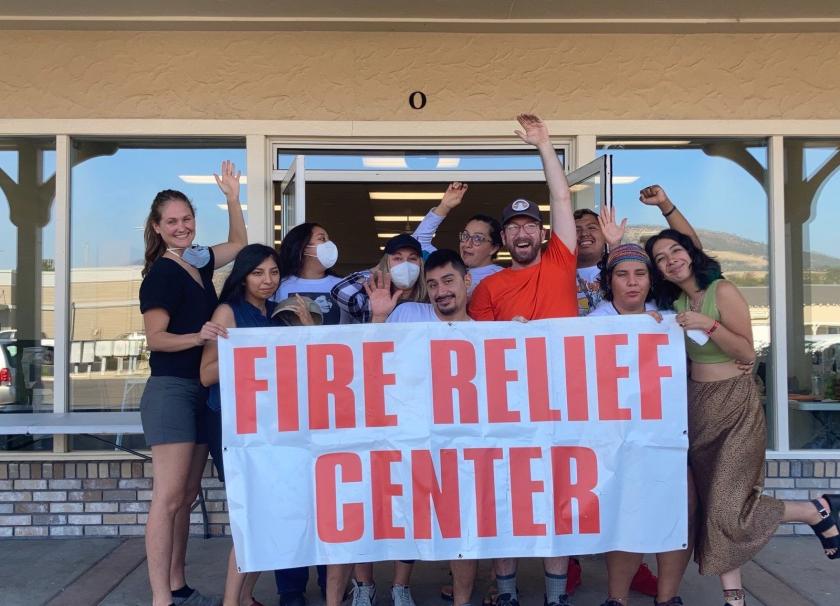
February Change for Good Partner: Rogue Climate
As we navigate the challenges posed by climate change, it becomes increasingly vital to support organizations dedicated to creating positive environmental impacts. This February, Ashland Food Co-op proudly introduces Rogue Climate as its Change for Good partner. Join us in supporting their mission to empower Southern Oregon communities most affected by climate change.
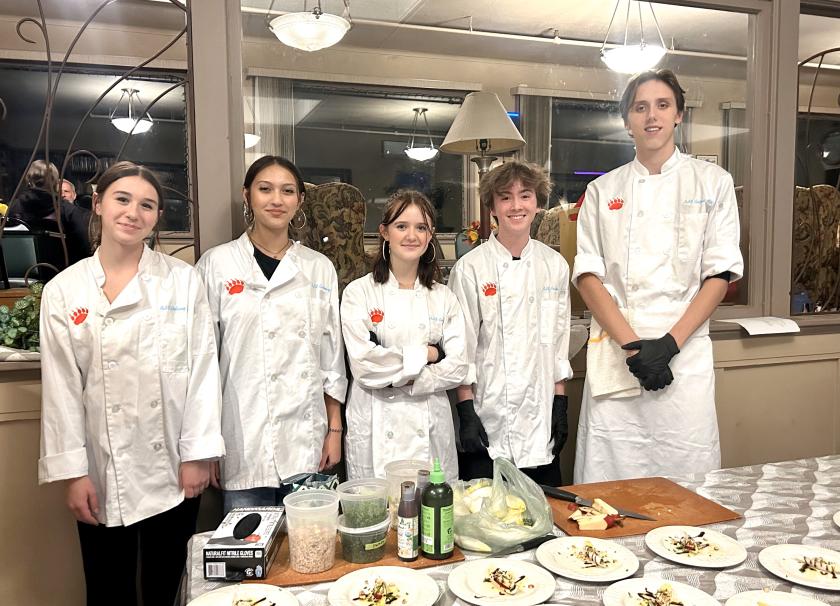
January Change for Good: AHS Culinary Arts Program
Hey Co-op community!
As we step into the new year, the Ashland Food Co-op is excited to continue our Change for Good program, and for January 2024, we're shining a spotlight on a program that's close to our hearts (and our stomachs) - the Ashland High School Culinary Arts Program.
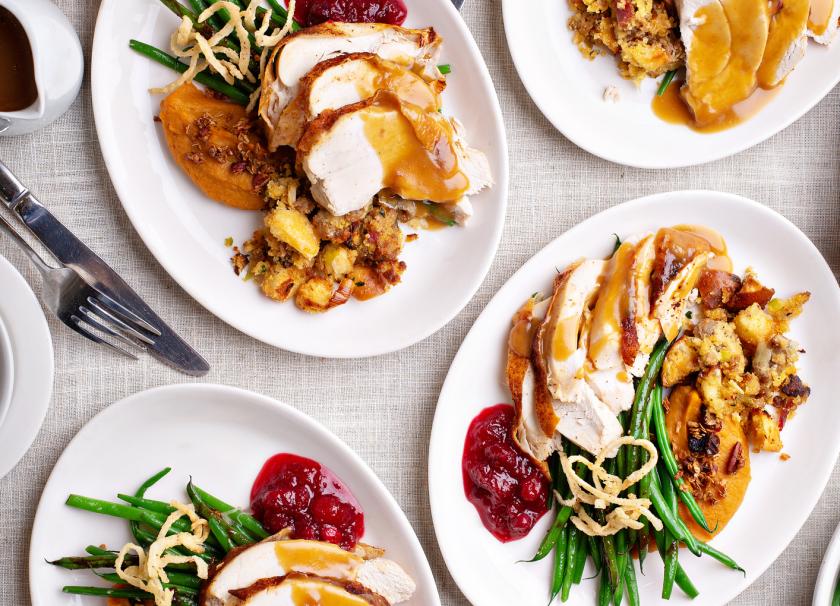
No Hassle Holiday - Thanksgiving Dinner from the Co-op!
This Thanksgiving, let us take the hassle out of your holiday feast preparation!
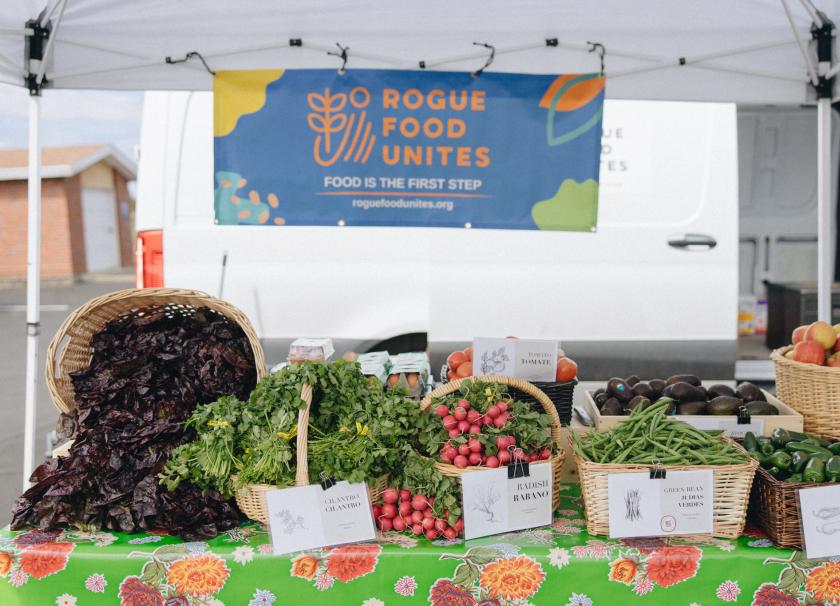
November Change for Good: Rogue Food Unites
Say hello to our November Change for Good partner - Rogue Food Unites!
Rogue Food Unites (RFU) uses food to heal individuals and communities during times of crisis. RFU was formed in 2020 out of the dual disasters of the Almeda and Obenchain fires and the impacts of COVID-19 on local communities. Within a short time, RFU began contracting with the State of Oregon to supply hot meals, food boxes, and solidarity cards in Deschutes, Douglas, Klamath, Josephine, and Jackson Counties.
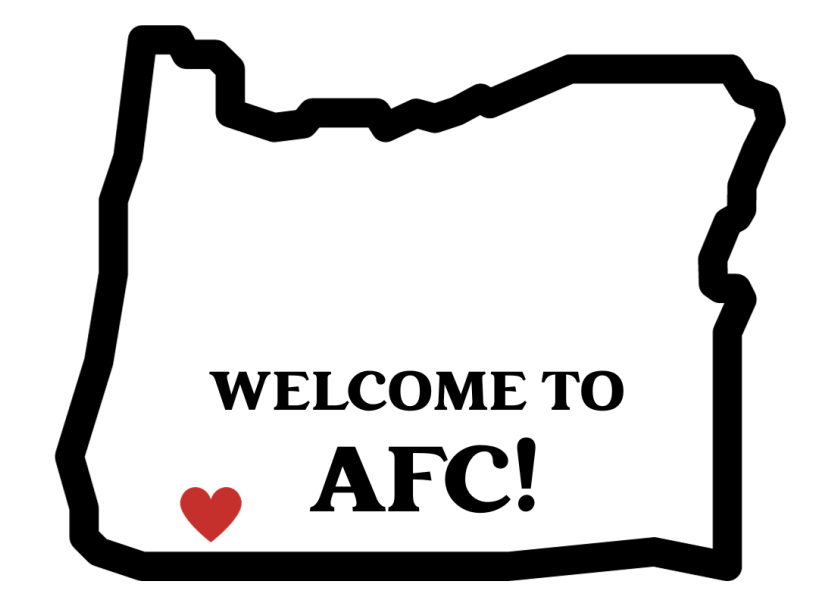
Meet Nick Hardee, AFC's new GM!
The Co-op Board of Directors and staff are thrilled to welcome Nick Hardee as the new General Manager of the Ashland Food Co-op! We asked Nick to share a little bit about himself so we'll get right to it!

October Change for Good: Center for Non-Profit Legal Services
This October, the Ashland Food Co-op is proud to partner with the Center for Non-Profit Legal Services (CNPLS) for our Change for Good program. All month long, shoppers can round up their purchases to support CNPLS and their mission to provide access to justice.
CNPLS is a non-profit legal aid firm serving low-income and vulnerable community members in Ashland and surrounding areas. Their team of dedicated lawyers and volunteers work to ensure everyone has access to legal help, regardless of their ability to pay.

It's Co-op Month!
OK, you've got us, every month is Co-op Month here at AFC! But every October since 1964, cooperatives of all kinds have celebrated the cooperative difference. Here at the Ashland Food Co-op, we're excited to recognize the history, benefits, and principles behind our own co-op.

September Change for Good: AFC Community Fund
As we enter the beautiful month of September here in Southern Oregon, we're excited to share that our Change for Good partner this month is our very own Community Fund. As many of you know, the Community Fund allows us to support amazing local projects and organizations doing great work right here in Southern Oregon.
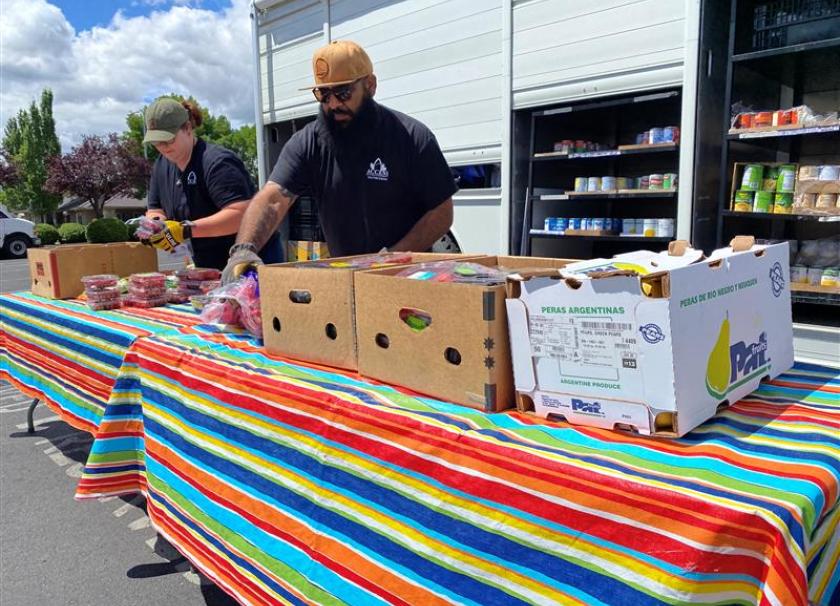
August Change for Good - Partnering with ACCESS to Make a Difference!
We are honored to partner with ACCESS this August - a fantastic organization that has been serving our community for over four decades. ACCESS, which stands for "A Community in Action, Connecting, Empowering, and Strengthening Self-Sufficiency," is dedicated to addressing hunger, homelessness, and poverty in Southern Oregon.

Empowering Our Community: AFC's Community Grants Now Accepting Applications
As part of our ongoing commitment to supporting the local community, AFC is thrilled to announce the that we are accepting applications for our Community Grants program.
Ashland Food Co-op's Community Grants program is designed to foster meaningful change in the Southern Oregon region. Through these grants, we seek to support projects that align with our mission of promoting local and sustainable food systems, addressing food insecurity, and promoting community engagement.

July's Change for Good Partner - Maslow Project
Ashland Food Co-op is thrilled to partner with Maslow Project for our Change for Good program! Maslow Project is an incredible organization that works tirelessly to support homeless youth and families in Southern Oregon. Their mission is to empower individuals and families to achieve self-sufficiency, and they do this through a range of services including housing assistance, medical care, and educational support.
